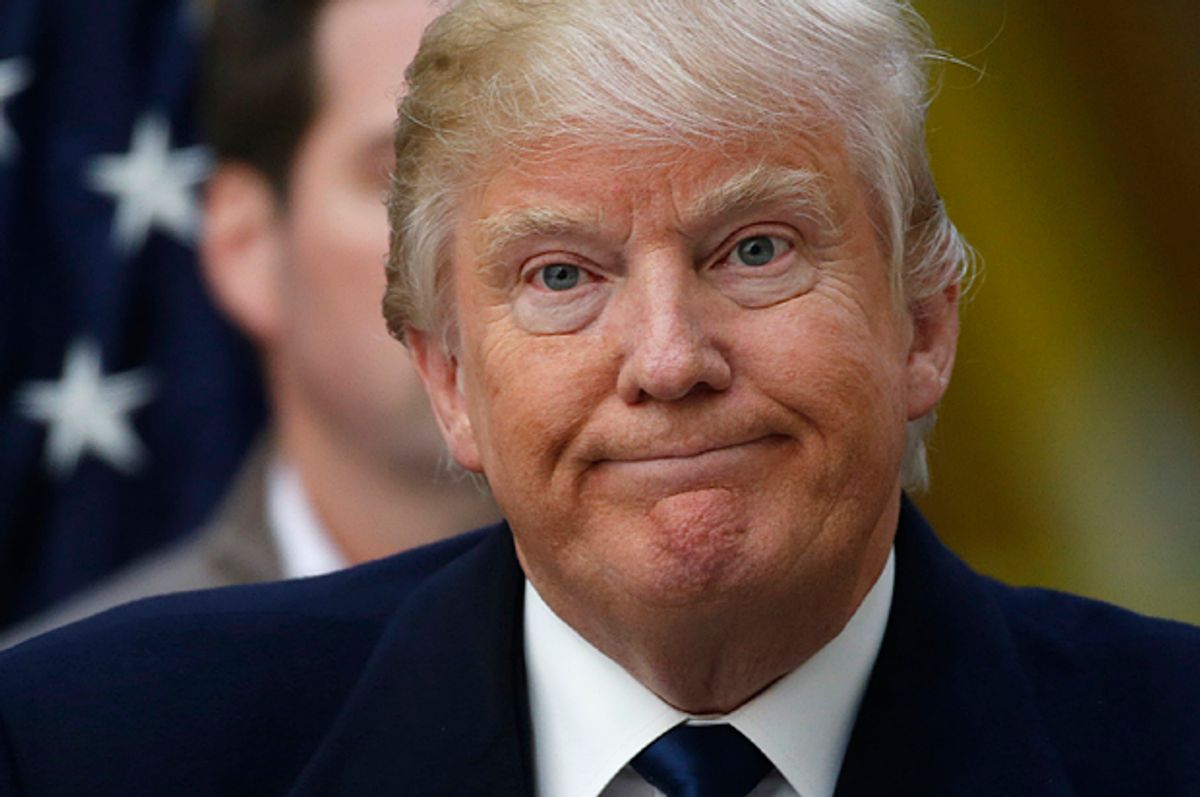“This is the day we take our country back.” - Donald Trump, February 1, 2016
The “take our country back” slogan first emerged with the Tea Party movement in 2009. It was never quite clear what that meant. Where did the country go? Who took it there? How do we take it back? These questions were never asked. The slogan itself implied the answers.
But there was a silent understanding among those who insisted the country had to be rescued from an internal threat. They knew what they meant, even if it remained unstated. For everyone outside the Tea Party box, there were clues. It was impossible not to notice, for instance, that the Tea Party was overwhelmingly white (89 percent, in fact). 75 percent of Tea Partiers were 45 years old or older, moreover, and roughly 60 percent were men. This was a movement of and for old white men.
Against this backdrop, it's not a stretch to see “take our country back” as an expression of racial and cultural resentment. The country has gotten less white and more progressive in recent decades, and that's a problem for the Tea Party demographic. The country they think they've lost is a phantasm, of course, but it feels real all the same.
The Tea Party movement ought to be seen as a precursor of Donald Trump. Electorally, Tea Partiers succeeded on a number of fronts, but they didn't reverse the inexorable march of progress. The racial panic is still there. The cultural hysteria has only grown. Many of the citizens who helped launch the Tea Party revolution are now more disillusioned than before.
Trump has virtually nothing in common with the average Tea Party voter. He's a cloistered Manhattanite, after all. But he's cleverly tapped the rage that birthed the movement; the old white people at his rallies participating in call-and-response chants about building walls confirms it. It might be too much to say the Trump campaign is a byproduct of the Tea Party movement, but there is certainly a connection.
A new Quinnipiac poll is the latest in a string of polls to clarify what's really animating Trump's campaign. American voters were asked if they believed “America has lost its identity?” The answers from Republicans and Democrats in general are revealing: 79 percent of Republicans agree that America has lost its identity, while only 36 percent of Democrats agree. If nothing else, this is a reminder that the GOP has a race problem, the roots of which are traceable to its adoption of the “Southern Strategy” over forty years ago.
The “highest level of agreement” with this notion that America has lost its identity is expressed by Trump supporters – a staggering 85 percent. 91 percent of Trump voters also say their “beliefs and values are under attack,” again the highest of any candidate. There is a kind of persecution mania operating here. “Many American voters, especially Republicans, are dissatisfied with their own status and the status of the country,” said Quinnipiac University Poll Director Douglas Schwartz, “but by far the most dissatisfied are Donald Trump's supporters, who strongly feel that they themselves are under attack.”
Lest you think this isn't about race, note that the Quinnipiac poll asked respondents if they believe the “government has gone too far in assisting minority groups.” Predictably, 72 percent of Republicans agreed compared to 18 percent of Democrats. Among Trump voters, however, the number was 80 percent. These numbers align with a recent American National Election Study (ANES) and Washington Post/ABC News poll, both of which show that support for Trump is positively correlated with racial animus.
“America has lost its identity” is an ambiguous phrase, but let's not pretend we don't know what it means. The people who think America has lost its “identity” are the same people who believe we have to take the country back. Yes, many Trump supporters are suffering from an economy in which they have no place. And there are legitimate concerns about free trade and a corrupt establishment. But what distinguishes the typical Trump is his or her propensity to project their frustration on brown or black people.
There are plenty of reasons to be outraged, but Trump supporters – like the Tea Partiers – retreat into identity politics as an outlet for that frustration. Some of them are racists; some of them are confused; all of them, however, are wrong about the sources of their pain. The apostles of neoliberalism, the defenders of corporate welfare – these are the real enemies of the working class. As I wrote in December, if Trump supporters weren't blinkered by bigotries, they'd be supporting someone like Bernie Sanders, who represents their interests far more than Trump will or could. But if these polls are any indication, racial demagogues like Trump will always have a comparative advantage in the political marketplace.

Shares